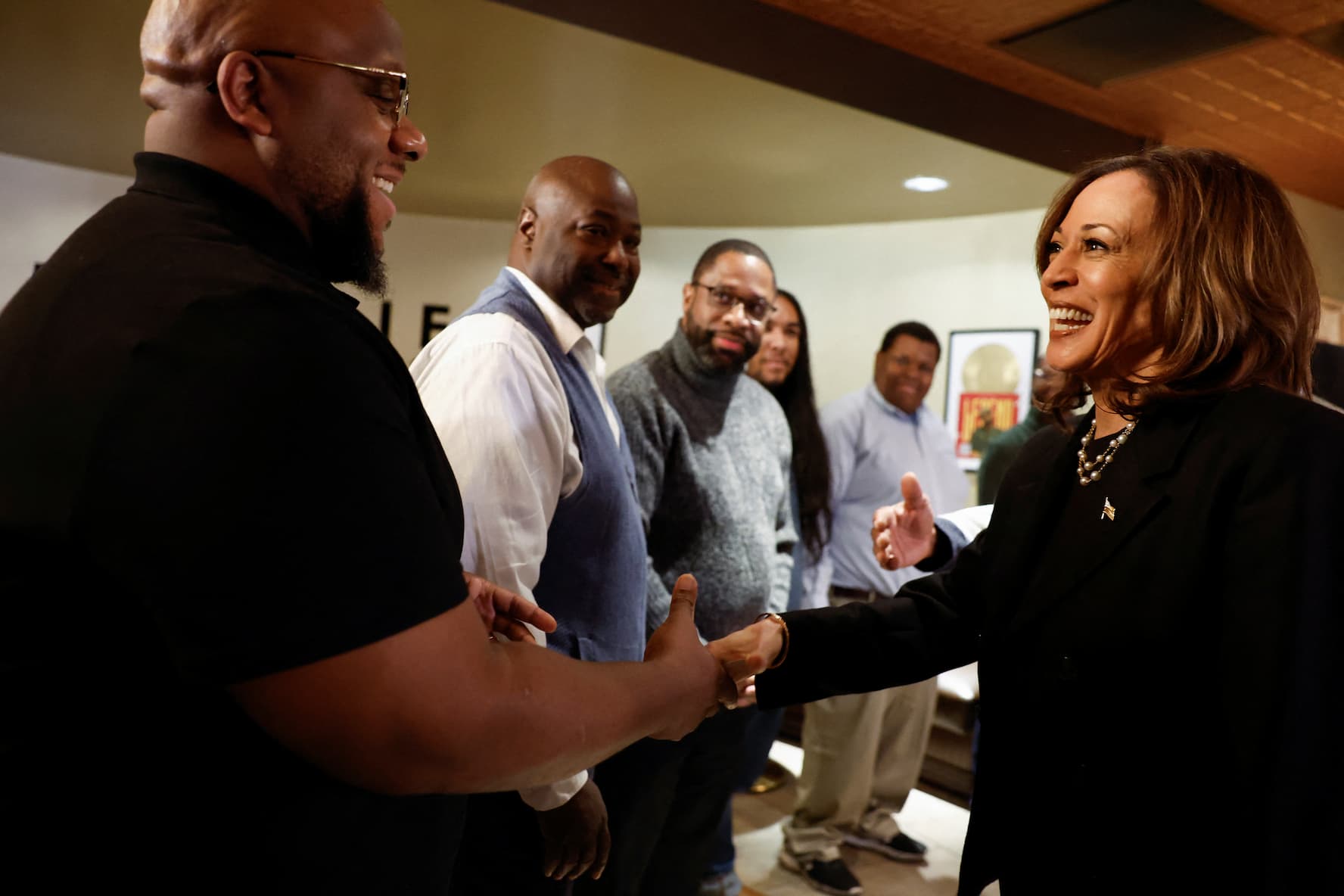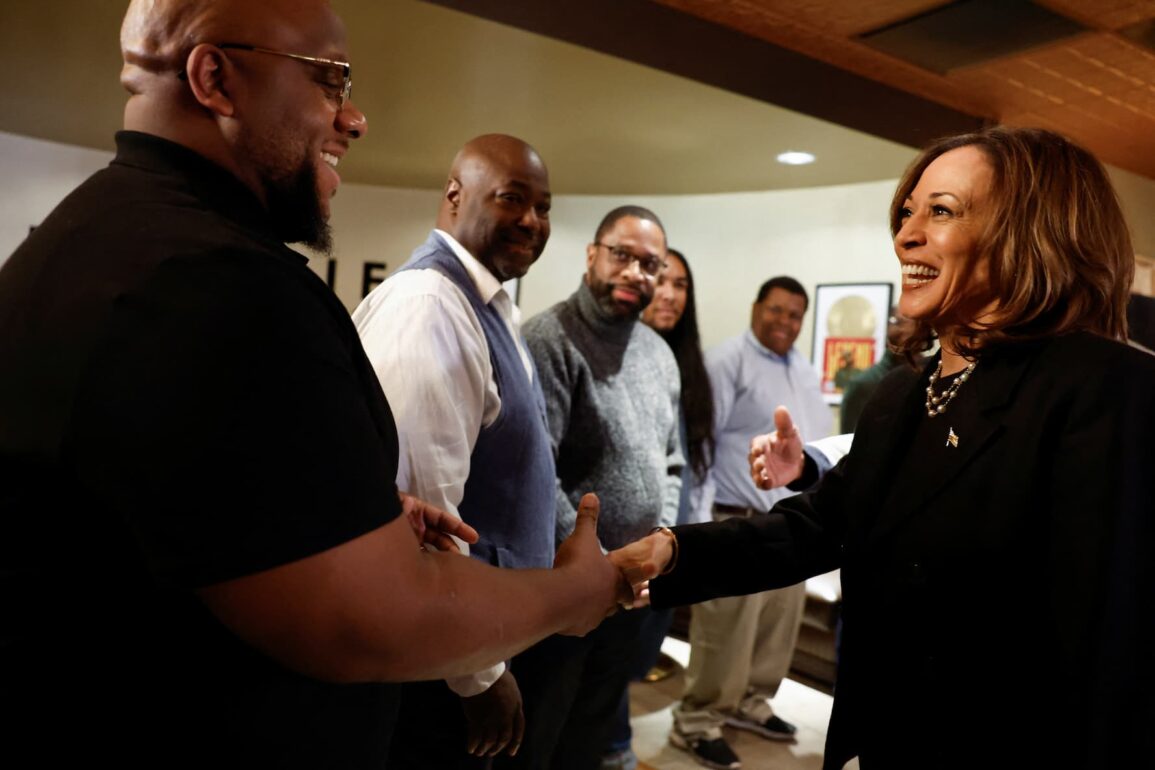
Former President Barack Obama recently caused an uproar when he called out Black men for what news reports and some polling indicate as less support for Vice President Kamala Harris as the Democratic presidential nominee. This outcry in the public square has reminded many Black men of their voice and has led them to speak out about their support, concerns, and disinterest in the Harris-Walz campaign and the political field more broadly.
Black Americans have offered a consistent refrain and critique of American democracy. With that refrain, Black Americans hold a range of political attitudes concerning the economy, family values, policing and criminal justice reform, and health care. Many people fail to embrace the political variations within Black families and communities, which frequently get muddled with an oversimplistic two-party system.
Obama, while speaking to staffers at a Harris campaign office in Pennsylvania, suggested that misogyny and sexism are the culprits of the lack of Black men’s support for Harris. “Part of it makes me think that, well, you just aren’t feeling the idea of having a woman as president, and you’re coming up with other alternatives and other reasons for that,” said Obama. Obama also spoke about former President Trump’s history with Black men, potentially alluding to past actions such as an ad demanding the “exonerated” Central Park Five be given the death penalty as well as Trump’s federal lawsuit for failing to rent to Black families.
Unpacking Obama’s comments, he suggests:
- Black men are blinded by their gender to see the value of Harris as president.
- Black men do not understand the impact of another Trump presidency on democracy, crime, family policies, the economy, and health care access.
- Trump does not respect Black men and will harm Black communities.
Among most Black men, there is consensus—Obama went too far and needed to “watch his tone.” The call on the carpet has cracked the privacy screens across Black men’s social networks and brought conversations that normally occur when building “community in the dark” into the light. The key question is why? Why are so many Black men aggrieved? We outline the most central “elephants” in the group-chats of Black men over the last several days.
First, across racial groups, Black men are the most loyal voting bloc to the Democratic Party (only second overall to Black women). Additionally, Black men have voted at higher rates for reproductive rights than men from other racial groups. Yet, Obama did not call out white, Latino, or Asian men, or even white women for their lack of support for Harris.
But is Obama right about misogyny? Well, overt sexism may be decreasing but neosexism—the belief that gender parity has been achieved—has heightened. This may be particularly pronounced among Black Americans, where Black women have higher education outcomes than Black men (same for whites), and comparable incomes. The public discussions about Black social mobility and political progress have most recently centered Black women and, for many Black men, they may feel pushed aside. So, should men collectively do better to advance women’s equal rights? Sure. But it’s clear that relative to other men, Black men may be more open to gender equality.
The second elephant is Harris’ racial identity. Some Black men do not think Harris is Black or, at the very least, not “Black enough”—meaning, she is not a descendant of enslaved Black people in the U.S. Some Black men have similar sentiments about Obama. For Harris though, her father is from Jamaica, and the African diaspora from Kenya to Jamaica to the U.S. often links Black people. The only difference is when and where the slave ship stopped. Acting as if Harris and Obama are not perceived as Black and treated as such discounts how the one-drop rule has operated in U.S. Census policy and performed when managing race in families and in the public. This one-drop rule has bound Black people through common discriminatory treatment and their fights for racial uplift.
Obama’s and Harris’ immediate families raise many complex issues within Black history and culture. While Barack has Michelle, and Black kids, Harris’ husband, Doug, may drive an even bigger disconnect between her and Black men. While Doug being Jewish may increase perceptions of Harris’ support for Israel, his whiteness in the American context may further disconnect her from Black people. Accordingly, Obama’s and Harris’ single-parent upbringings may not link to the social realities of many Black men as much as it should, so it is complicated. Trump knows this, which is why he is raising concern about Harris’ Blackness the same way he challenged Obama’s birthplace and lineage. Obama’s Black church membership and his speech on race and racism elevated the saliency of the one-drop rule and W.E.B. DuBois’ double-consciousness. At the same time, Obama’s place at the top of the “Talented Tenth” draws attention to who have been called “sell-outs” because of their educational pursuits, social mobility, political views, or choice in romantic partners.
So, while Obama attended Harvard University and rose to become the first Black president, these accolades may be disconnected from the everyday experiences of some Black men and further create fissures that link Obama to them. Accordingly, Harris’ Howard University degree and membership in Alpha Kappa Alpha Sorority, Inc., the first Black intercollegiate sorority, were among the first accolades her campaign released. Though often lauded, these notches of Black culture may mean little to Black men who did not attend college or network with members of Black sororities in their cities or understand their contributions to Black communities. These notches may actually create more distance between her and Black men. Therefore, Obama and Harris may be prototypes for the growing social class divide among Black Americans. Around 10% of Black men make at least $100,000 a year, and less than 20% have a bachelor’s degree.
Consequently, linked fate may be weaning, at least in terms of education, occupational mobility, and income, maybe not necessarily in regard to wealth, health, or policing outcomes. During the days of Jim Crow segregation, a Black professor could live next door to a sanitation worker. Now, these two groups of Black men may only come in contact at the end of the driveway. Though both the professor and sanitation worker know they are linked in a lot of ways, they recognize that social class outcomes and social networks divide them.
Third, the biggest elephant in the room is that many Black men feel left out and forgotten by the Democratic Party. They are tired of feeling as if their voice is not heard or that they only matter on issues of policing and criminal justice reform. Some Black men believe Obama did not do enough for them, or Black Americans, while in office. There is even a sect of Black men who believe that Obama put issues such as gay marriage before issues affecting Black communities. While Black unemployment was significantly slashed by Obama, and the Affordable Care Act increased life expectancy, reduced Black maternal and infant mortality, and increased health care access among Black Americans, Black men may have not readily felt these changes.
Obama’s embracement of “respectability politics” and “tough love” as a “political-know-it-all uncle,” or even a grandpa “past his time” who is unaware of present cultural norms to some of the youngest Black male voters, may be rejected in an era where political correctness seems to be fleeting. Why? Respectability politics have not stopped police violence against Black men or led to mass social mobility across generations.
Overall, people are recognizing that Black men, and Black people more broadly, are not a monolith. Despite a shifting trend away from Democrats in recent elections, voting behavior tells us that an overwhelming majority of Black men will still vote Democrat. Trump is banking on division. Harris, Obama, and other Democrats sure hope that linked fate still operates as a collective political strategy.


